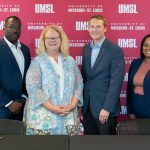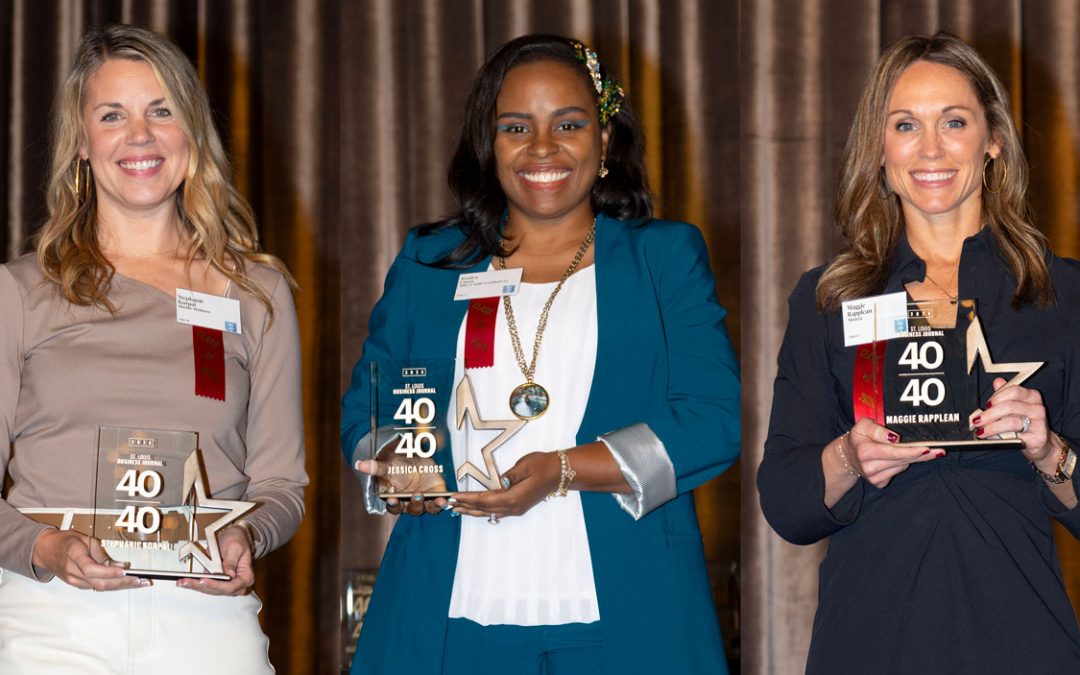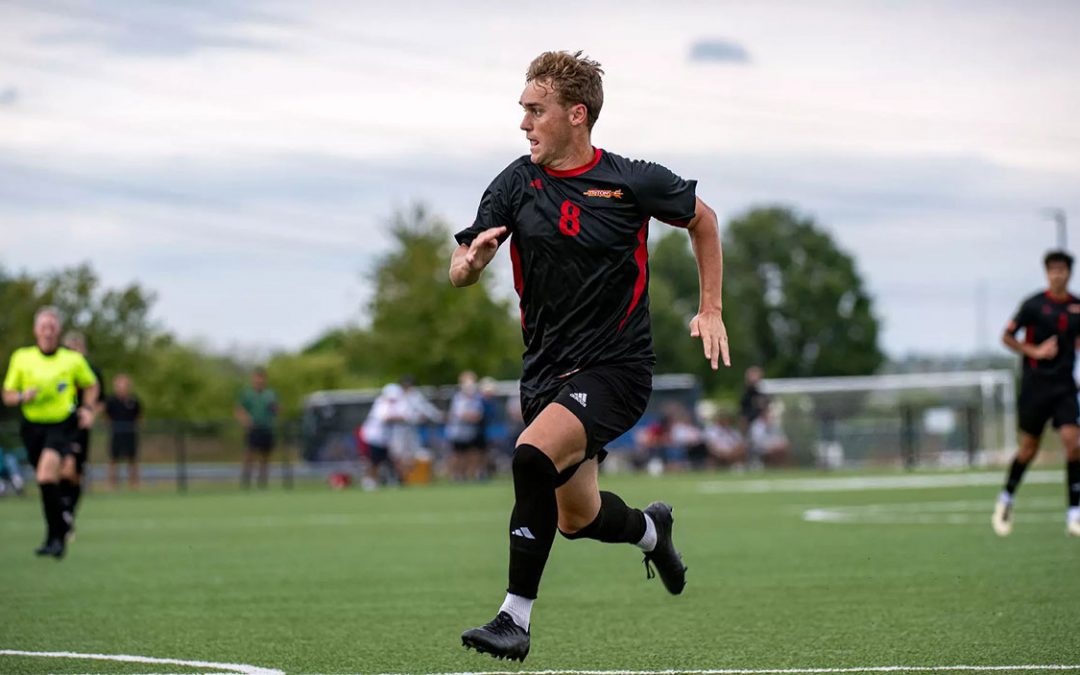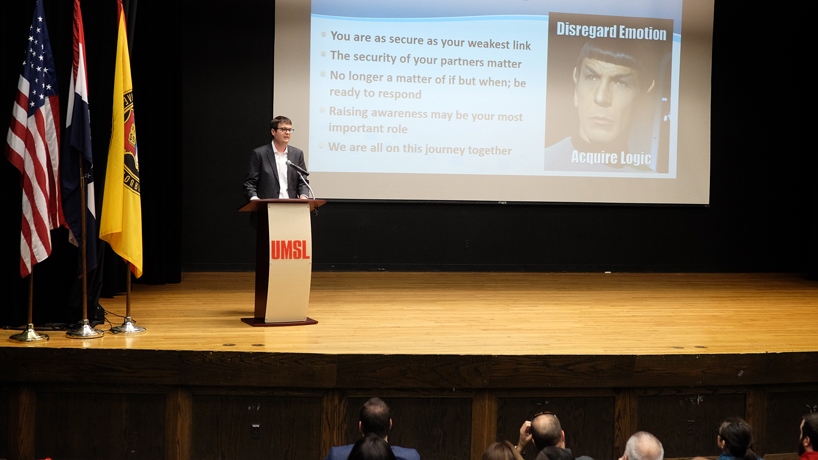
Michael Roling, the chief information security officer for the state of Missouri, shares some final thoughts at the conclusion of his keynote address Friday morning at STLCyberCon 2017 at the J.C. Penney Auditorium. (Photos by Steve Walentik)
Information technology professionals came together with students from area high schools, community colleges and universities – more than 500 people in total – and packed the seats of the J.C. Penney Auditorium last Friday for STLCyberCon 2017.
The annual cybersecurity conference, sponsored by Mastercard, marked its third year and offered lessons on and promoted awareness of cybersecurity issues while showcasing what the University of Missouri–St. Louis has to offer through the joint work of the computer science and information systems departments.
“We’re the only NSA-designated program in the region,” said Shaji Khan, an assistant professor of information systems. “Letting people know, getting them excited and making UMSL sort of the hub for cybersecurity education is the goal of this kind of conference.”
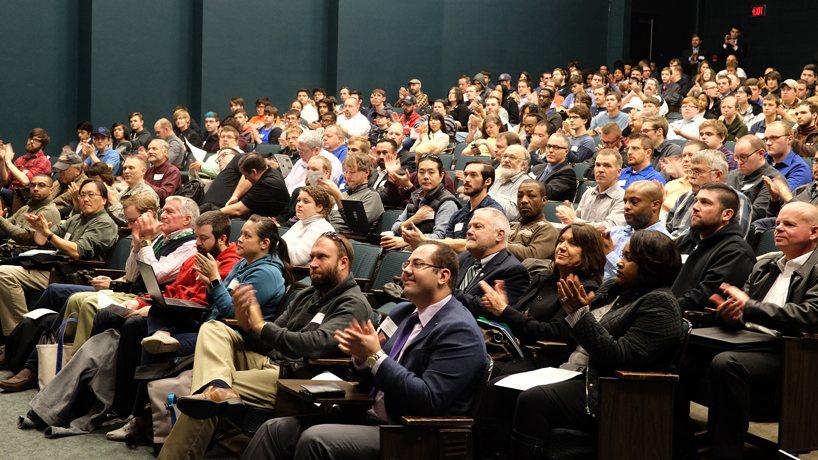
A crowd of more than 500, consisting of both students and professionals from across the St. Louis region, packed into J.C. Penney Auditorium Friday for STLCyberCon 2017.
After a welcome from Chancellor Tom George, Khan introduced Michael Roling, the chief information security officer for the state of Missouri, who delivered the first of two keynote addresses – his on the work the state’s office of cybersecurity.
“We have 6 million residents, and we have data on every single one of you,” Roling said ominously during his address, drawing chuckles from the crowd, before he quickly changed his tone. “We don’t take that lightly. We take it very personally because our data is in there as well, and we want to do everything we can to make sure your data’s protected.”
He went on to highlight numerous ways the office works to safeguard information systems in Missouri.
Mano Paul, the lead cybersecurity strategist at General Motors and the author of two books, delivered the second keynote address on Friday afternoon, offering a look at the field today and where it’s headed in the future.
Among other points, he talked about the need to study hackers and learn from them.
“You know who they are and why they hack, but do you really know how they hack?” Paul asked rhetorically.
He went on to demonstrate several hacks.
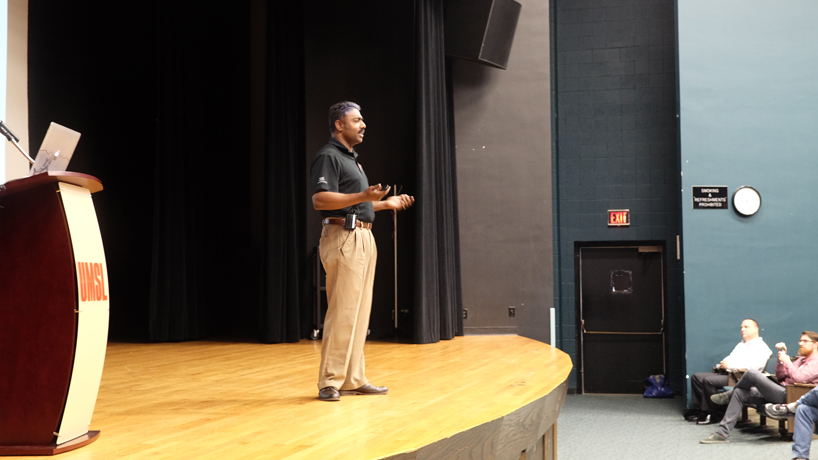
Mano Paul, the lead cybersecurity strategist at General Motors, addresses the audience from the J.C. Penney Auditorium stage on Friday afternoon at STLCyberCon 2017.
In addition to the two keynote addresses, the conference featured shorter presentations from speakers such as Poonam Verma, the vice president of identity access management at Mastercard; Lt. Col. George Sconyers, the 375th Communication Support Squadron commander at Scott Air Force Base; and Roftiel Constantine, the director of global information technology at Baldwin Technology Company.
A capture-the-flag competition, challenging participants to find “flags” in binaries, web applications and systems, was held in conjunction with the conference for the first time. The event also featured a career fair with representatives from nearly 30 businesses or agencies.
“It was a great event. Turnout was unbelievable,” said Khan, who was particularly pleased with the number of high school students in attendance. “There’s really a severe shortage of cyber talent, and companies, governments are struggling to get people into the talent pipeline. The sooner we start, the better it is. That’s why we want high school students excited about cybersecurity.”









